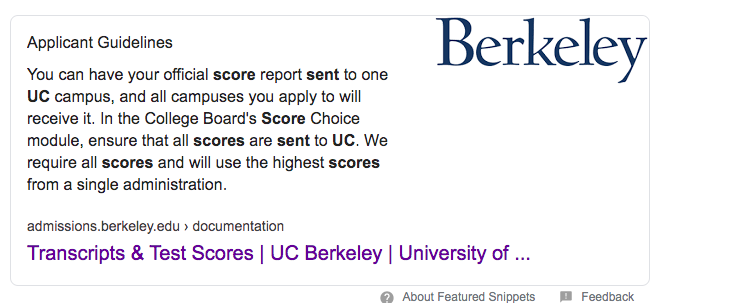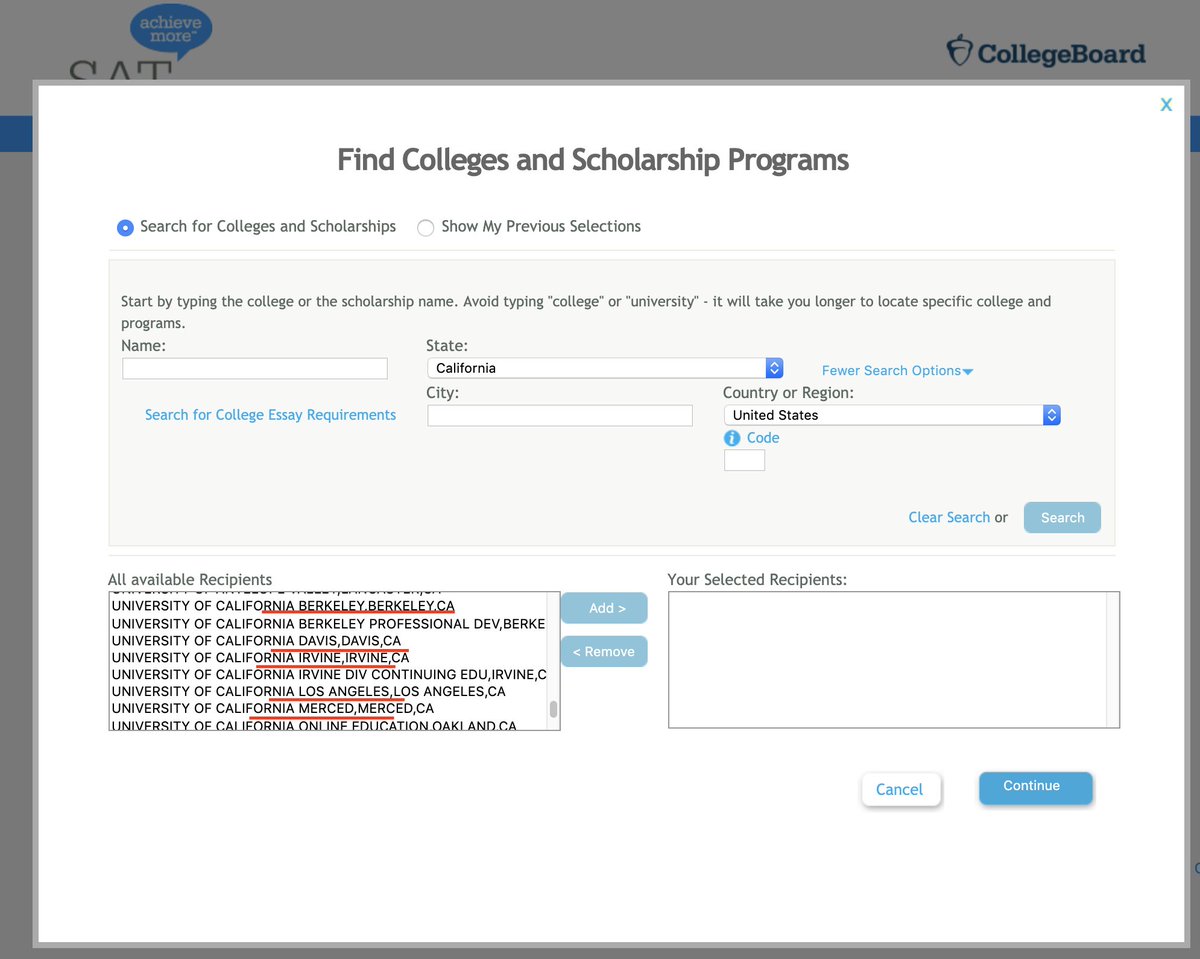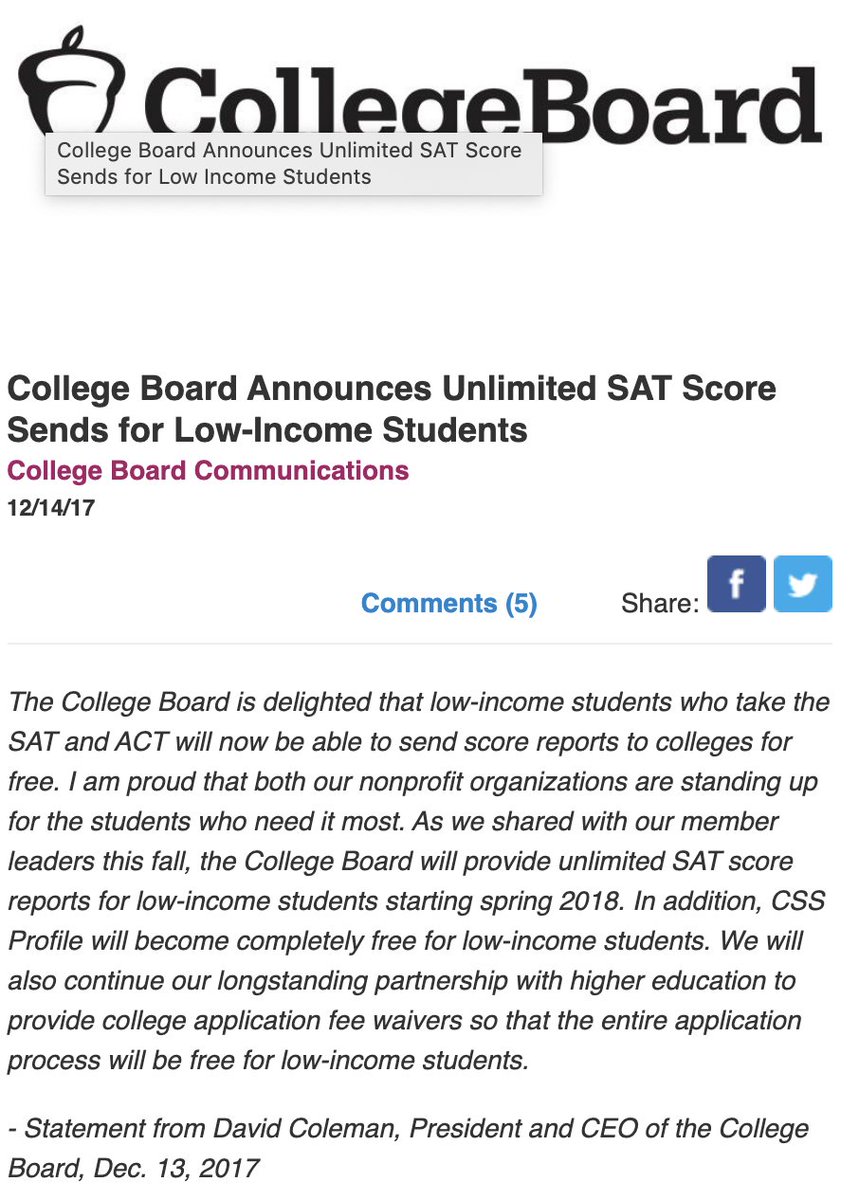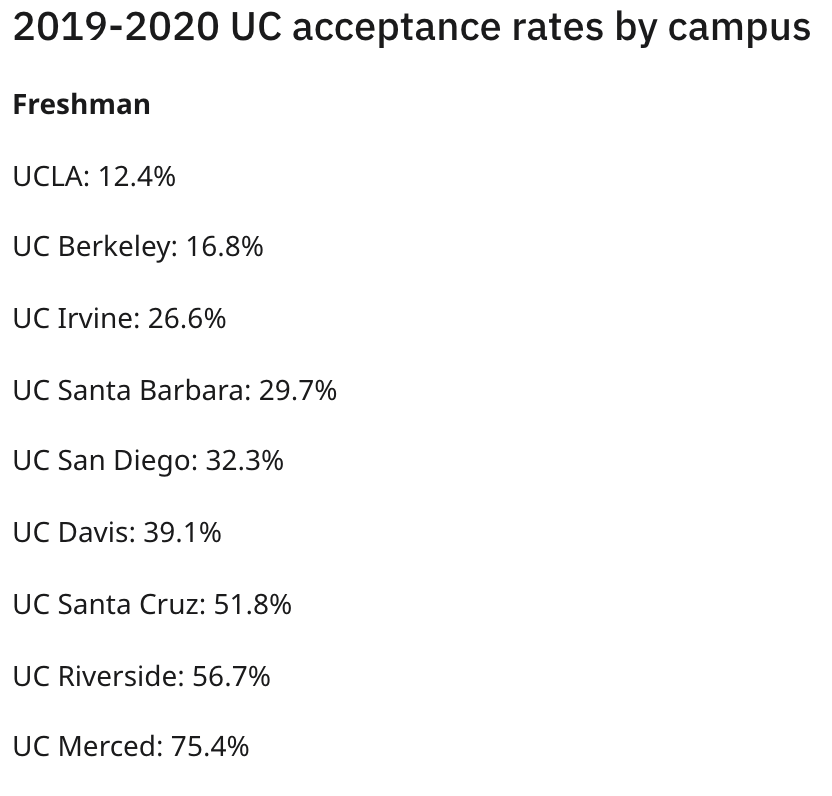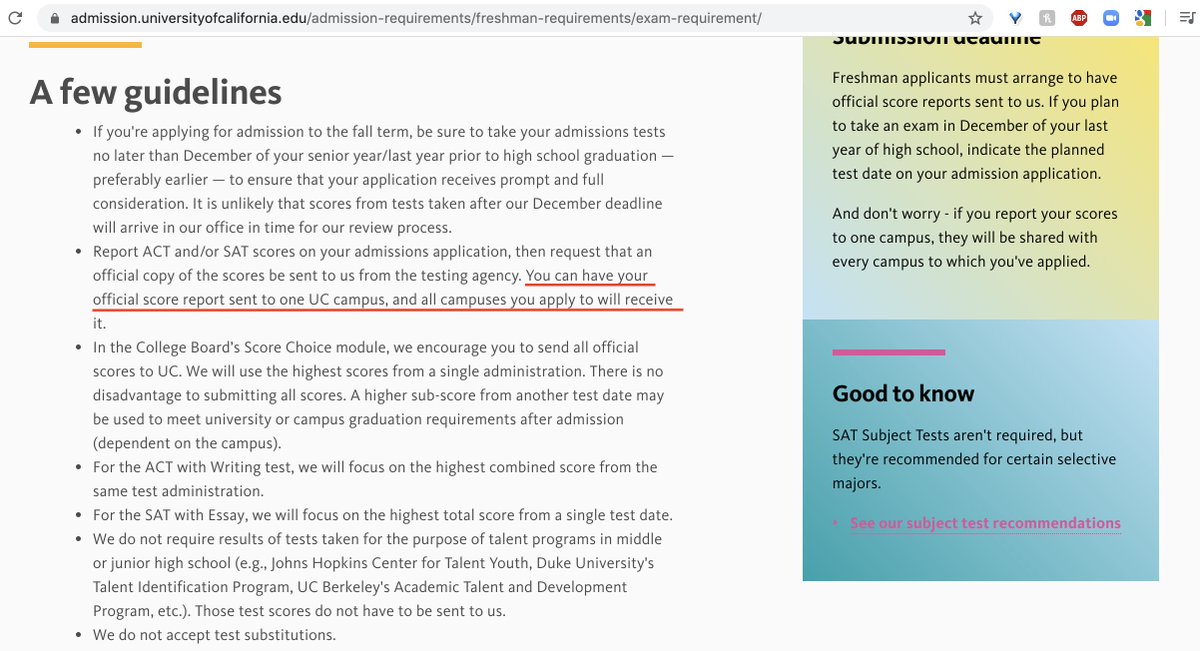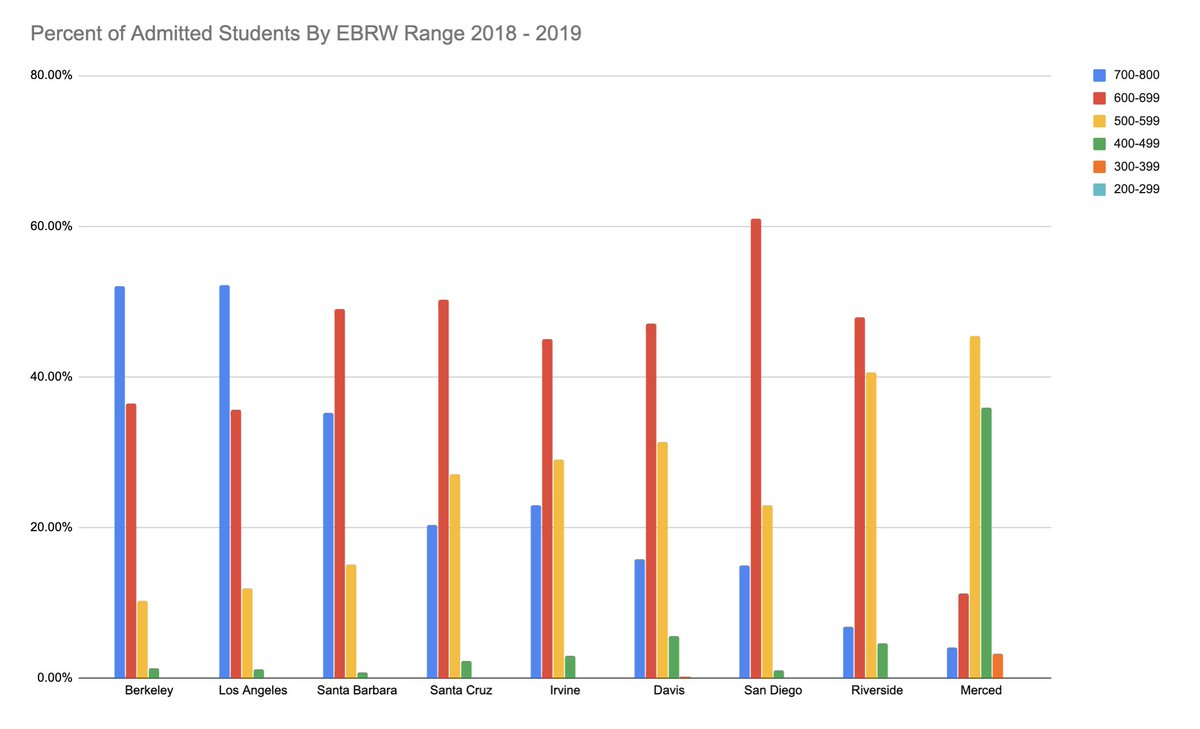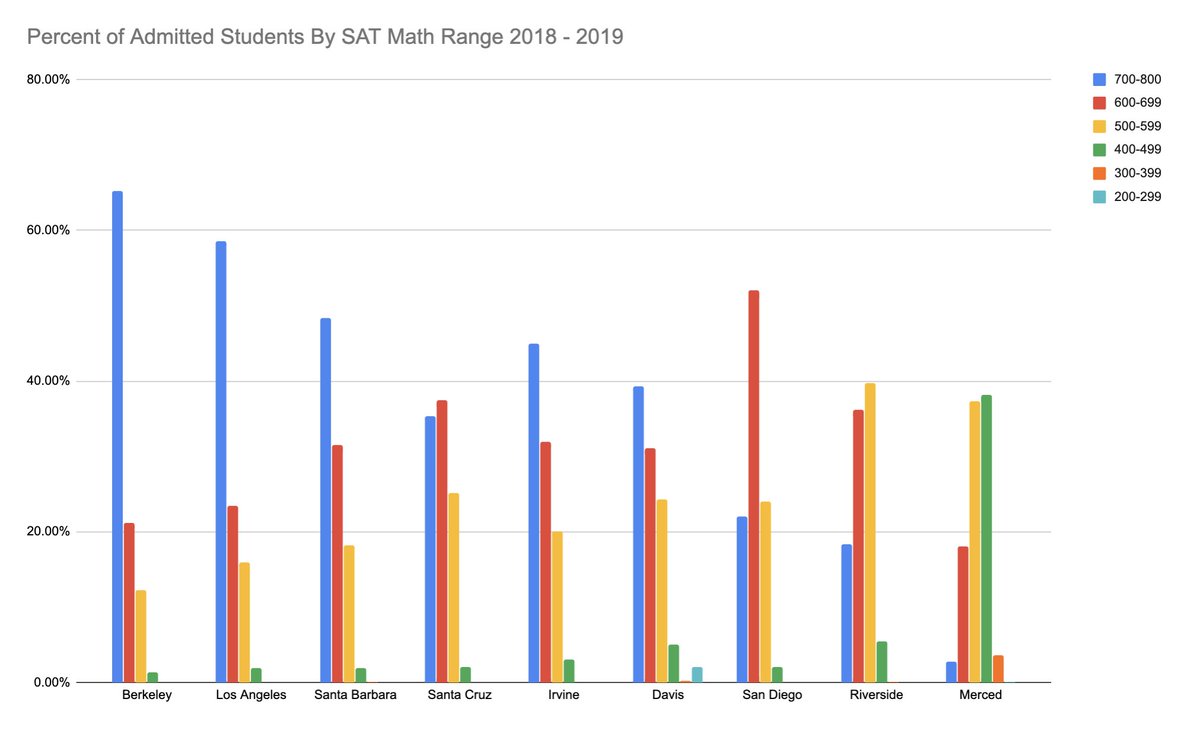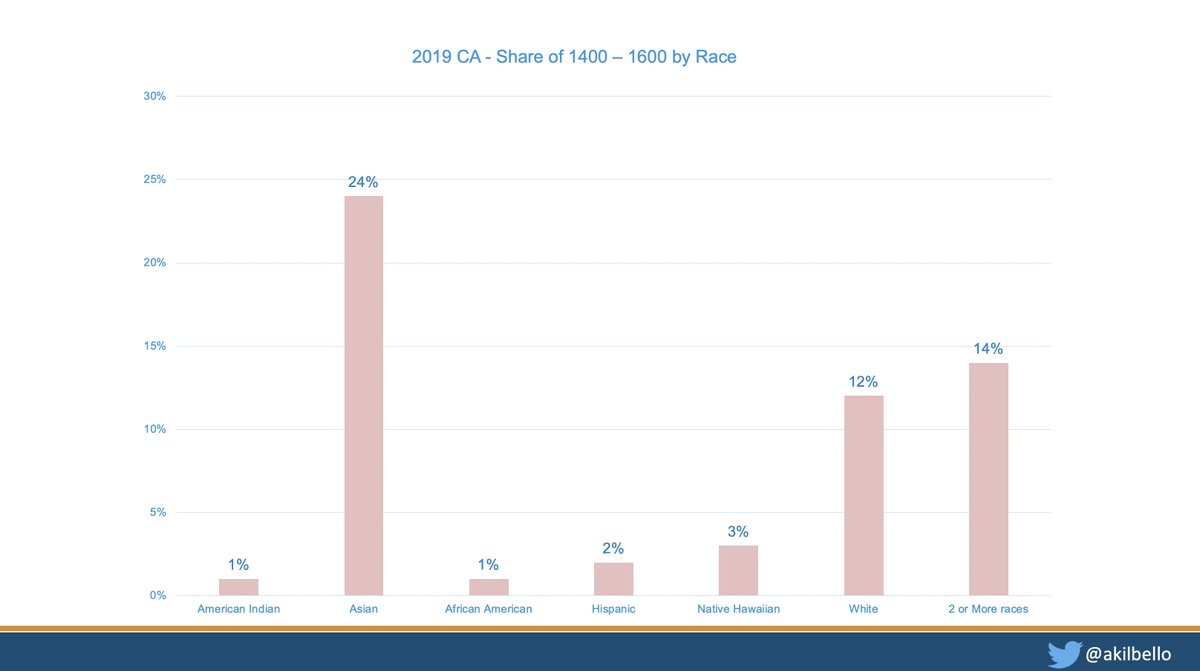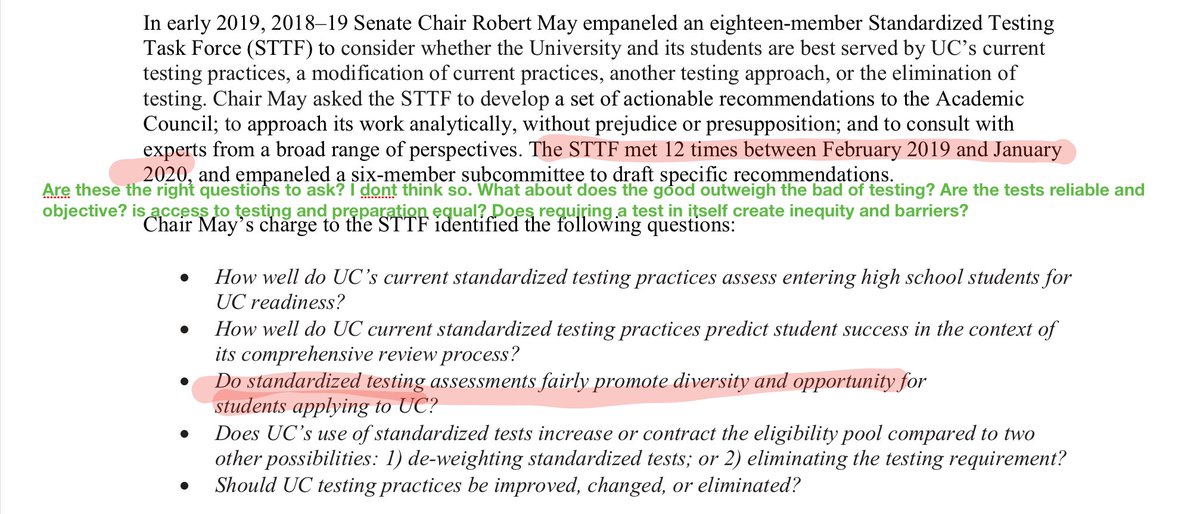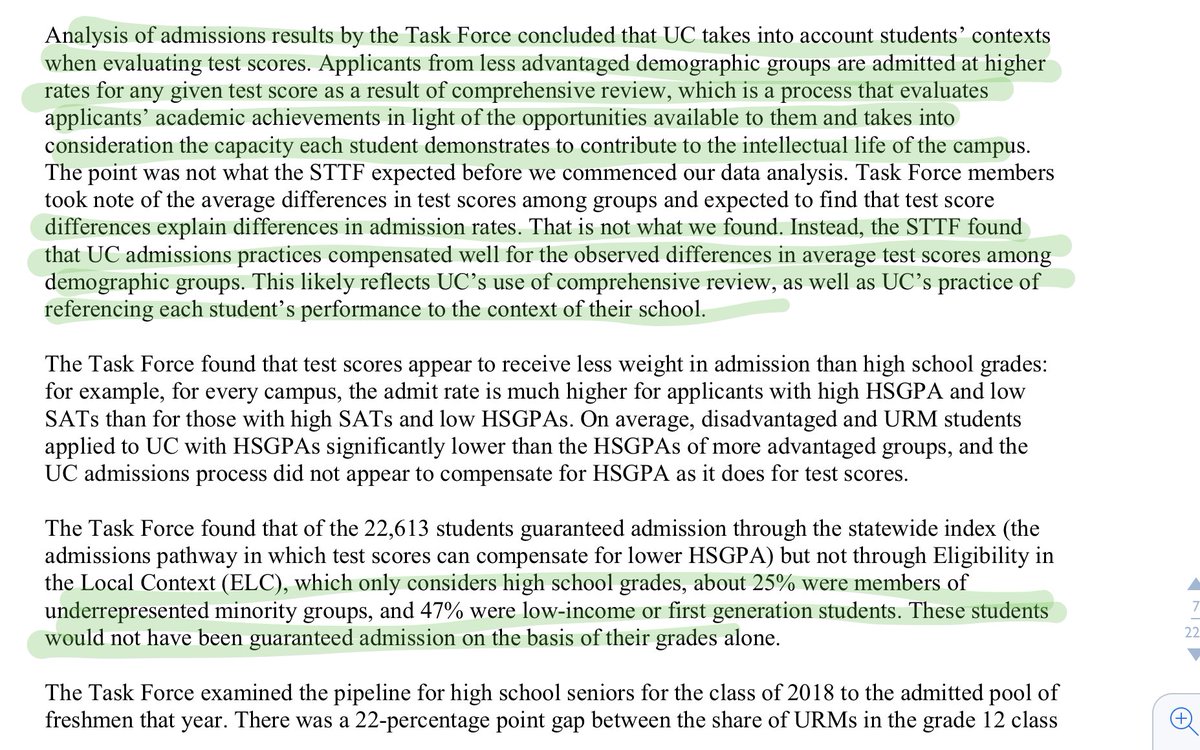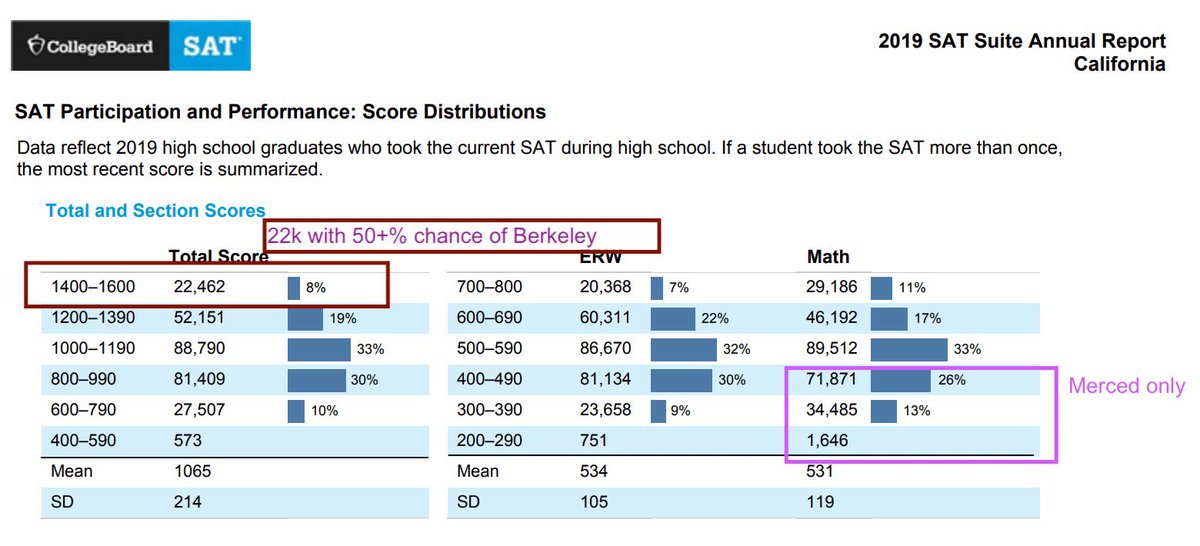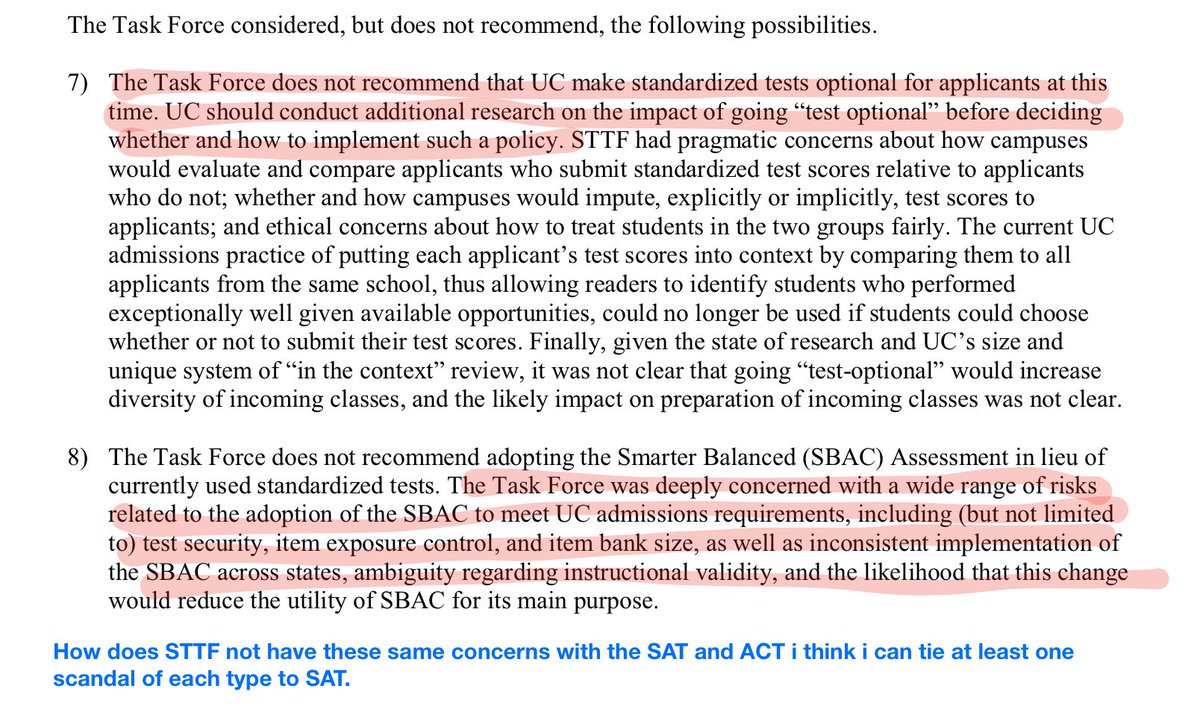I’m about to dive into the UC STTF report. This won’t be quick (days?) and will take some windy digressions, but I’ll thread
1. 50 “College Board” mentions (ht @JonBoeckenstedt)
2. 7 “college board research”
3. at least 2 references to research of former CB staff
#NowReading
1. 50 “College Board” mentions (ht @JonBoeckenstedt)
2. 7 “college board research”
3. at least 2 references to research of former CB staff
#NowReading
Anyone remember when Richard Atkinson, President emeritus of the University of California called out @CollegeBoard for "Rather than resolving the problem, this rhetorical sleight-of-hand served to underscore the mystery of what the SAT is supposed to measure." #SAT
I know I said i was thread the report but . . . I can& #39;t help wondering about how much lobbying @CollegeBoard did to get this report written. They have a history.
In 2013 College Board 990 shows $1.7MM in lobbying money. In 2017 $2.2M
The 3rd image is from a site (i have no clue about their data, which doesn& #39;t seem to match to 990 totals and no patience to look) but the huge spikes in spending strike me as interesting.
The 3rd image is from a site (i have no clue about their data, which doesn& #39;t seem to match to 990 totals and no patience to look) but the huge spikes in spending strike me as interesting.
The news that comes up when you google College Board and lobbying is interesting.
https://hechingerreport.org/college-board-cashing-in-on-push-for-more-degrees/">https://hechingerreport.org/college-b...
https://hechingerreport.org/college-board-cashing-in-on-push-for-more-degrees/">https://hechingerreport.org/college-b...
More about CB lobbying https://www.newamerica.org/education-policy/edcentral/how-college-boards-aggressive-campaign-to-save-the-sat-may-kill-it/">https://www.newamerica.org/education...
Holy crap! Please watch this video from 1961. The standardized test--an educational tool.
At 9:35 Ms Wilcox tells George "This really isn& #39;t the kind of a test you can study for." https://archive.org/details/thestandardizedtestaneducationaltool">https://archive.org/details/t...
At 9:35 Ms Wilcox tells George "This really isn& #39;t the kind of a test you can study for." https://archive.org/details/thestandardizedtestaneducationaltool">https://archive.org/details/t...
I getting off track but that video is amazing (and kinda relevant today). The dam video doesn& #39;t explain what that "Speed" score is.
Weird that the #STTF report only found one college that went test optional in that time frame but New American found many. https://www.newamerica.org/education-policy/edcentral/how-college-boards-aggressive-campaign-to-save-the-sat-may-kill-it/">https://www.newamerica.org/education...
Also here is more lobbying info, some enterprising business journalist should chart lobbying vs test changes vs ACT growth.
Remember that this is a 200+ page document and I’m going to be reading it over several days so, i don’t promise a chronological analysis.
There are weird things through the report.
1. They don’t now what a high SAT score is or an average SAT score. In 2017 990 was the 38%ile and and 1100 61%ile
2. They are treating an author in Forbes with equal gravitas as Saul Geiser. (Image 1)
1. They don’t now what a high SAT score is or an average SAT score. In 2017 990 was the 38%ile and and 1100 61%ile
2. They are treating an author in Forbes with equal gravitas as Saul Geiser. (Image 1)
Also interesting is the volume of College Board and ACT reasearch that is relied on. I would have expected the taskforce to seek more independent studies.
So far I don’t find the report well argued. It seems a fairly topical analysis so for with a great number of assumptions. And many of the assumptions seem to stem from blind acceptance of statements by the testing agencies.
But also holy rounding Batman!
This is more weirdness in the report. They rounded the total apps by more than 10% but reported UCLA accurately.
Why???!!!???
Is this how we academia? (Maybe I shouldn’t go get a masters)
This is more weirdness in the report. They rounded the total apps by more than 10% but reported UCLA accurately.
Why???!!!???
Is this how we academia? (Maybe I shouldn’t go get a masters)
Let me cycle back to this morsel about #validity.
Look at that faulty comparison. Let me fix that line for them:
"Despite the [claimed] efforts the College Board over the years to improve the validity of their standardized tests in predicting college success, [they have not]."
Look at that faulty comparison. Let me fix that line for them:
"Despite the [claimed] efforts the College Board over the years to improve the validity of their standardized tests in predicting college success, [they have not]."
I just discovered i& #39;m on page 129 of 228. I don& #39;t know how I got to page 129.
Dammit.
Somehow I landed on this page (119) and thought it was the interior cover. I started reading here. #DigitalReadingDrawback
Dammit.
Somehow I landed on this page (119) and thought it was the interior cover. I started reading here. #DigitalReadingDrawback
Another digression but golly gee willykers its impossible to figure out some of this crap ...
I& #39;ve just consulted with 2 admissions counselors and it took 30 minutes to figure out if you can send SAT scores to the "UC system" or have to send individually to each campus.
I& #39;ve just consulted with 2 admissions counselors and it took 30 minutes to figure out if you can send SAT scores to the "UC system" or have to send individually to each campus.
Only Berkeley seems to state it clearly that you can send 1 to the system .. but wait for it ..
In @CollegeBoard& #39;s score send portal there are 12 entries for various "University of California" campuses. There is 0 entries for "University of California System"
#DollaDollaBills
In @CollegeBoard& #39;s score send portal there are 12 entries for various "University of California" campuses. There is 0 entries for "University of California System"
#DollaDollaBills
Assuming most kids send scores to all campuses College Board is/was making bank on score sends. Until 2018, students got 4 blind score sends included with the registration fee that had to be used by 9 days after the test. After that its $12 per score send.
So assuming that of the 695,418 applications to individual campuses 60% of kids paid to send scores.
417251 × 12 = $5,00,7012
I guess $2,000,000 invested in lobbying pays off huge! Thats 3 milly in profit from CA alone.
417251 × 12 = $5,00,7012
I guess $2,000,000 invested in lobbying pays off huge! Thats 3 milly in profit from CA alone.
Scores sends are an equity and access issue. They are pricy and dissuade some students from applying. This slide is from presentation I made in 2017.
For more on score sends as they currently exists and impact equity (especially for #ACT school day), please read this thread https://twitter.com/James_S_Murphy/status/1224319381502615553?s=20">https://twitter.com/James_S_M...
I& #39;m going to try to get back on track ..
Imagine being low income and trying to pay to apply to college
$70 per campus to apply
$12 to send scores to each campus
Also UCs and CB are cleaning up here (I don& #39;t know that the cost of running the application system is but damn that seems insane).
695,418*$70=$48,679,260
$70 per campus to apply
$12 to send scores to each campus
Also UCs and CB are cleaning up here (I don& #39;t know that the cost of running the application system is but damn that seems insane).
695,418*$70=$48,679,260
@James_S_Murphy pointed out that UC does a decent job saying on some pages (not boldly enough for my liking), but @CollegeBoard& #39;s score reporting panel creates confusion. I be 30 - 60% of applicants send to multiple campuses.
I haven& #39;t forgotten this thread ... Here are three great minutes to watch about how @CollegeBoard reacted the last time the UCs threatened to drop the #SAT (scroll down) #uc-excerpt">https://www.thetestdoc.org/press #uc-excerpt">https://www.thetestdoc.org/press...
Should I even bother getting demographics at each campus? I already know where all the brown people must be in the UC system.
So far in the 50 odd pages of the report I& #39;ve read, data is not disaggregated by campus. I hope they don& #39;t try to hide behind big data.
So far in the 50 odd pages of the report I& #39;ve read, data is not disaggregated by campus. I hope they don& #39;t try to hide behind big data.
So as I continue to thread this I’m not posting all my questions because I have tons. It’s also a live reading so I’m sure some of my questions will be answered later in the document (at least I hope).
There is intended logic to colors but its not consistent. :::Kanye Shrug:::
There is intended logic to colors but its not consistent. :::Kanye Shrug:::
The A-G thing is probably the most damning for CA education and failure to serve Black and Hispanic students but what’s the motivation behind giving the SAT a pass?
Elsewhere in the doc they seem to define low as below 1100. The mean state score is 1065.
Elsewhere in the doc they seem to define low as below 1100. The mean state score is 1065.
This is one of the 6 “consensus” recommendations.
1, 2, and 4 are probalby good and impactful.
3 calls for more analysis, which is odd to me given this 200 pages.
5 and 6 I find really odd. Here is 5.
1, 2, and 4 are probalby good and impactful.
3 calls for more analysis, which is odd to me given this 200 pages.
5 and 6 I find really odd. Here is 5.
My guess is recommendation 5 comes from the work of my friend and colleague Jay Rosner.
I say that rec is odd because Jay’s work is from 2003 (2 tests versions ago) so why didn’t the UCs do the research now? Are these new questions to them?
http://jayrosner.com/publication-onwhitepreferences.html">https://jayrosner.com/publicati...
I say that rec is odd because Jay’s work is from 2003 (2 tests versions ago) so why didn’t the UCs do the research now? Are these new questions to them?
http://jayrosner.com/publication-onwhitepreferences.html">https://jayrosner.com/publicati...
Also why not recommend a “completely analysis of the premises and underlying assumptions, the items creation, and the administration practices” of admissions tests?
Wouldn’t it make more sense to gain a full picture of how tests are created, prepared for, delivered, and used?
Wouldn’t it make more sense to gain a full picture of how tests are created, prepared for, delivered, and used?
Rec 6 is create a new assessment. Jesus, I don’t even know where to begin with that. I’m going sit on that one for a while.
Then we get to the non-recommendations.
8 is again sort of strange. Do I really have to thread all the SAT/ACT kerfuffles in the past 5 years?
8 is again sort of strange. Do I really have to thread all the SAT/ACT kerfuffles in the past 5 years?
This announcement reminds me that I never finished reading the BOARS report... sigh.
UC President Napolitano recommends dropping the SAT, ACT tests https://www.sfchronicle.com/bayarea/article/UC-President-Napolitano-recommends-dropping-the-15262991.php?utm_campaign=CMS%20Sharing%20Tools%20(Premium)&utm_source=t.co&utm_medium=referral">https://www.sfchronicle.com/bayarea/a...
UC President Napolitano recommends dropping the SAT, ACT tests https://www.sfchronicle.com/bayarea/article/UC-President-Napolitano-recommends-dropping-the-15262991.php?utm_campaign=CMS%20Sharing%20Tools%20(Premium)&utm_source=t.co&utm_medium=referral">https://www.sfchronicle.com/bayarea/a...

 Read on Twitter
Read on Twitter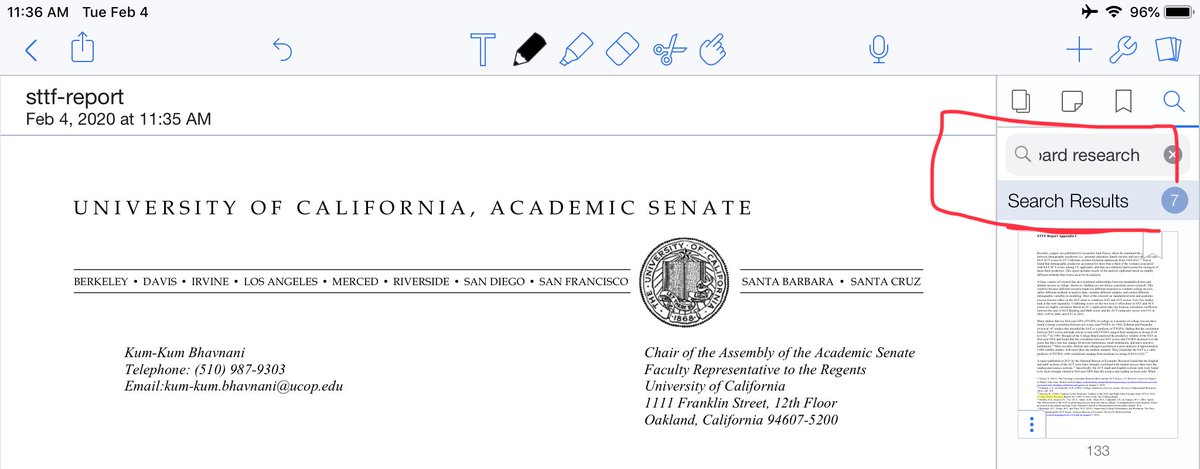
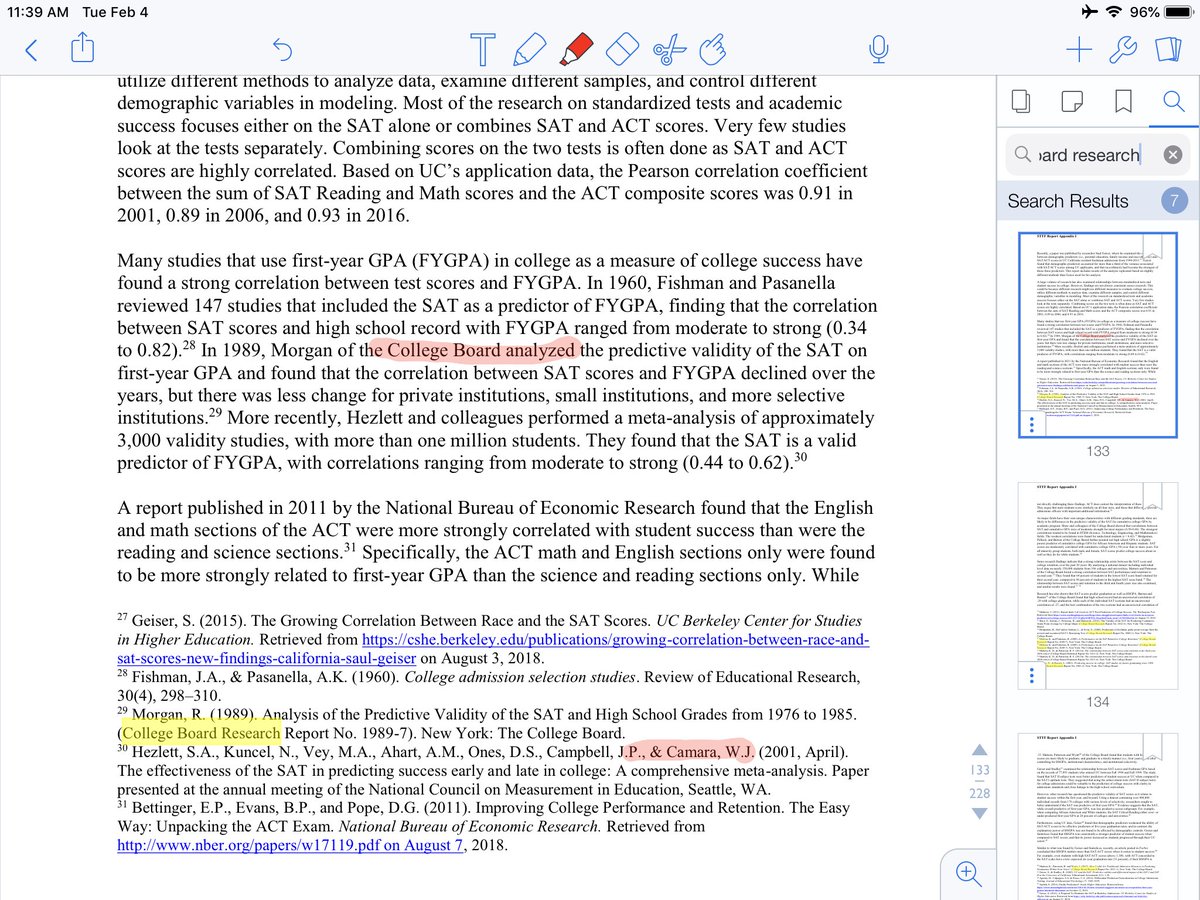
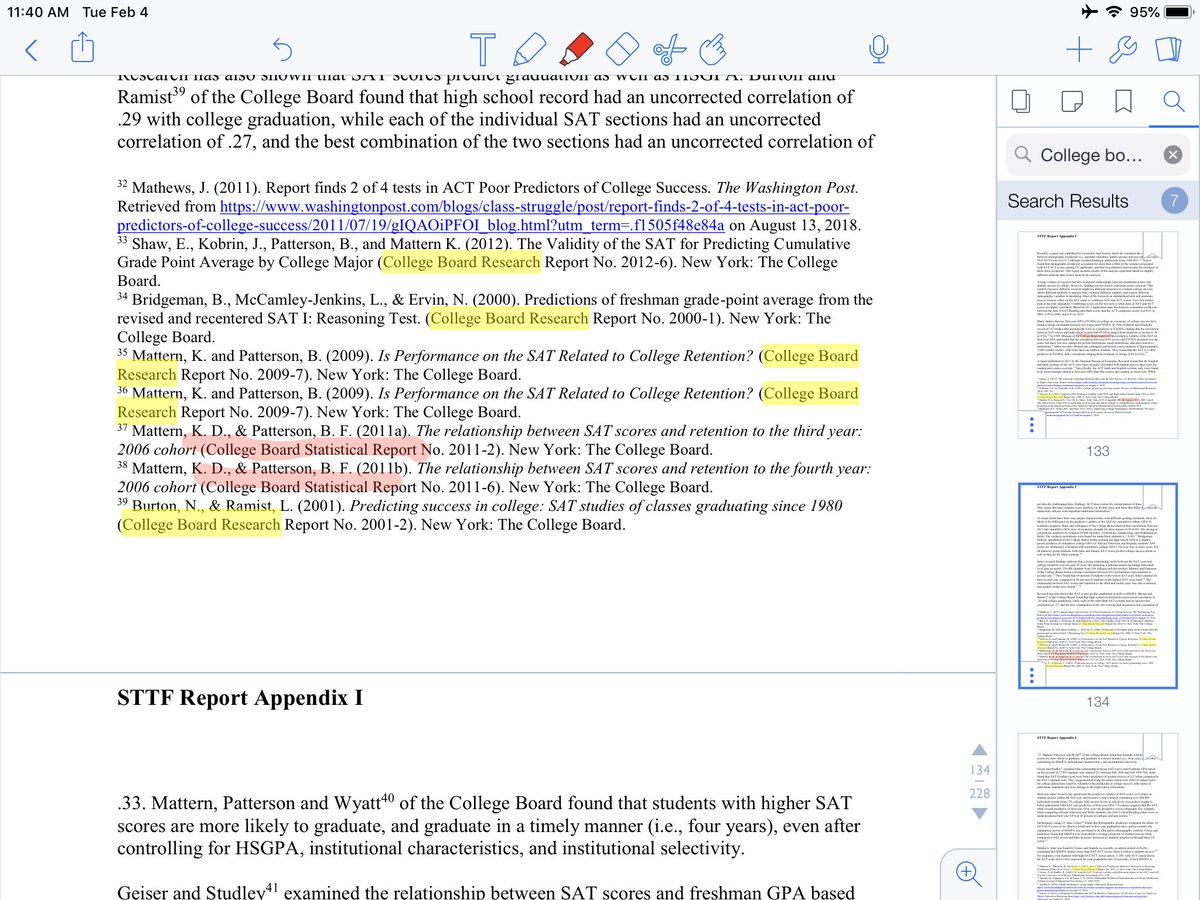

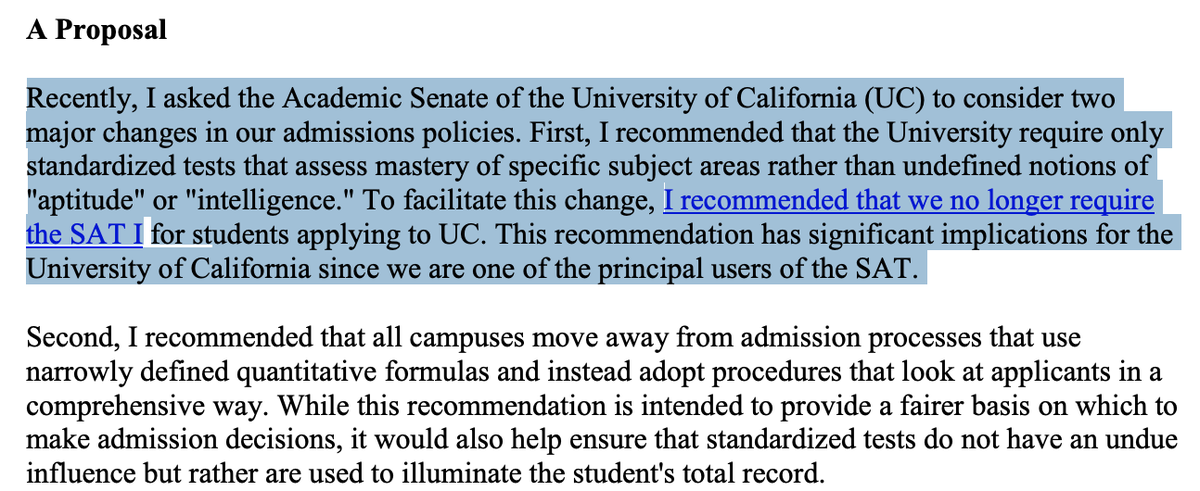

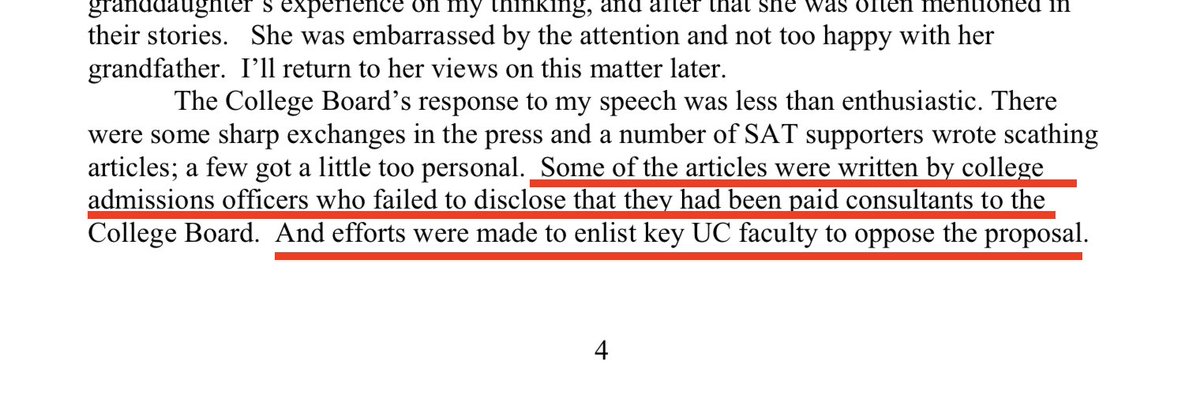
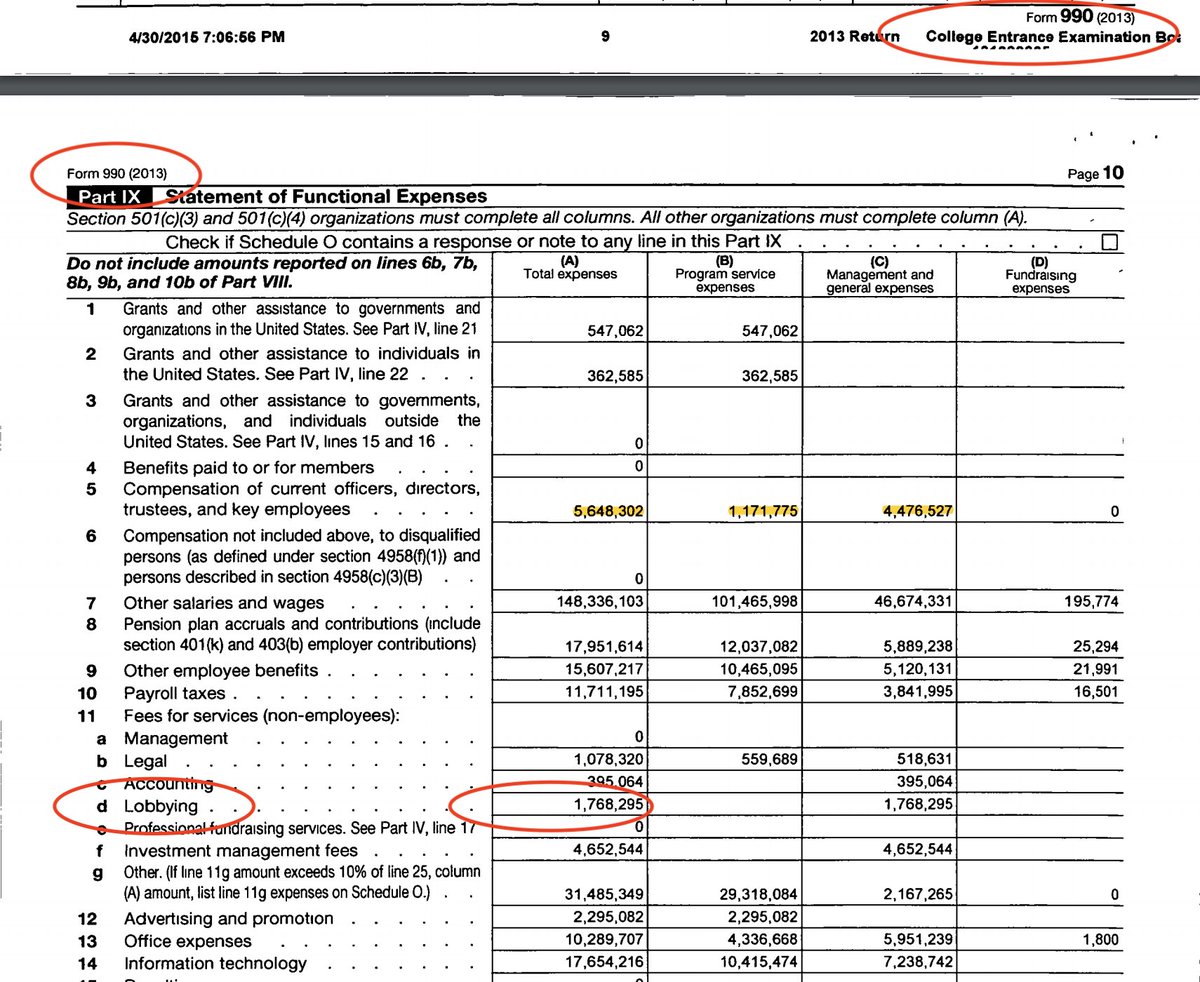

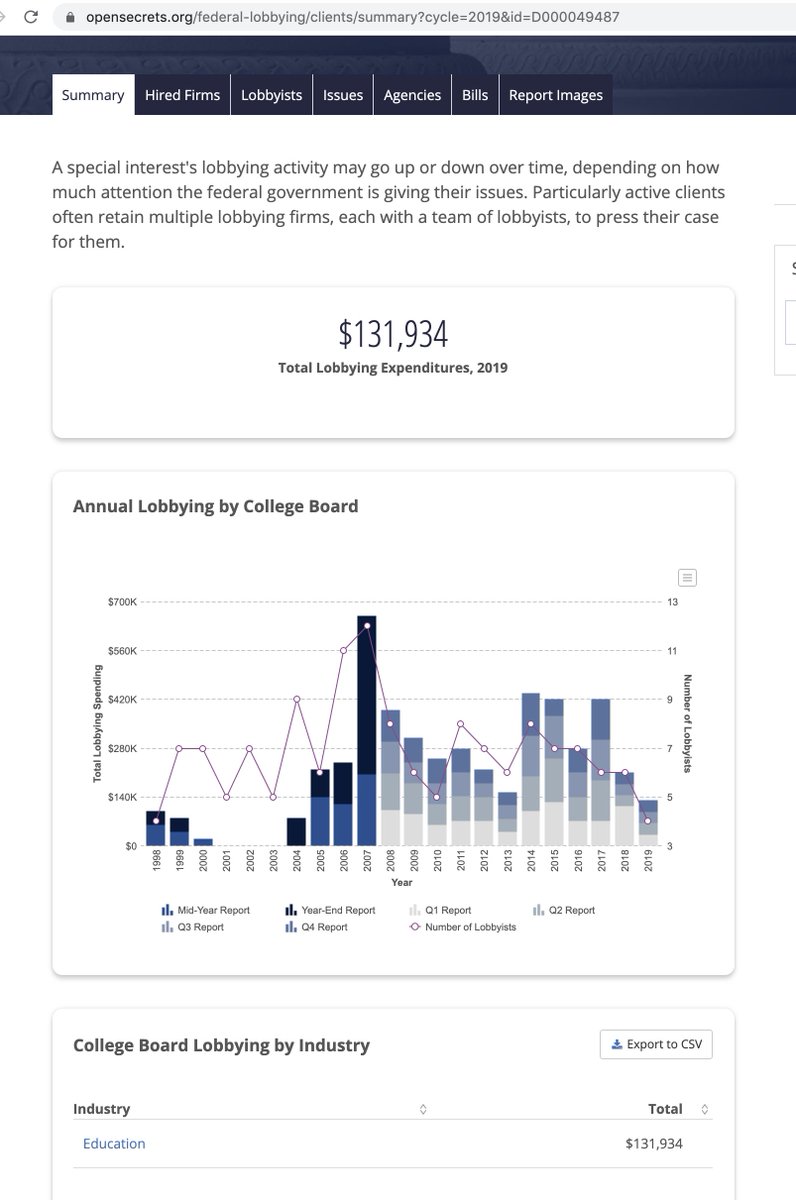
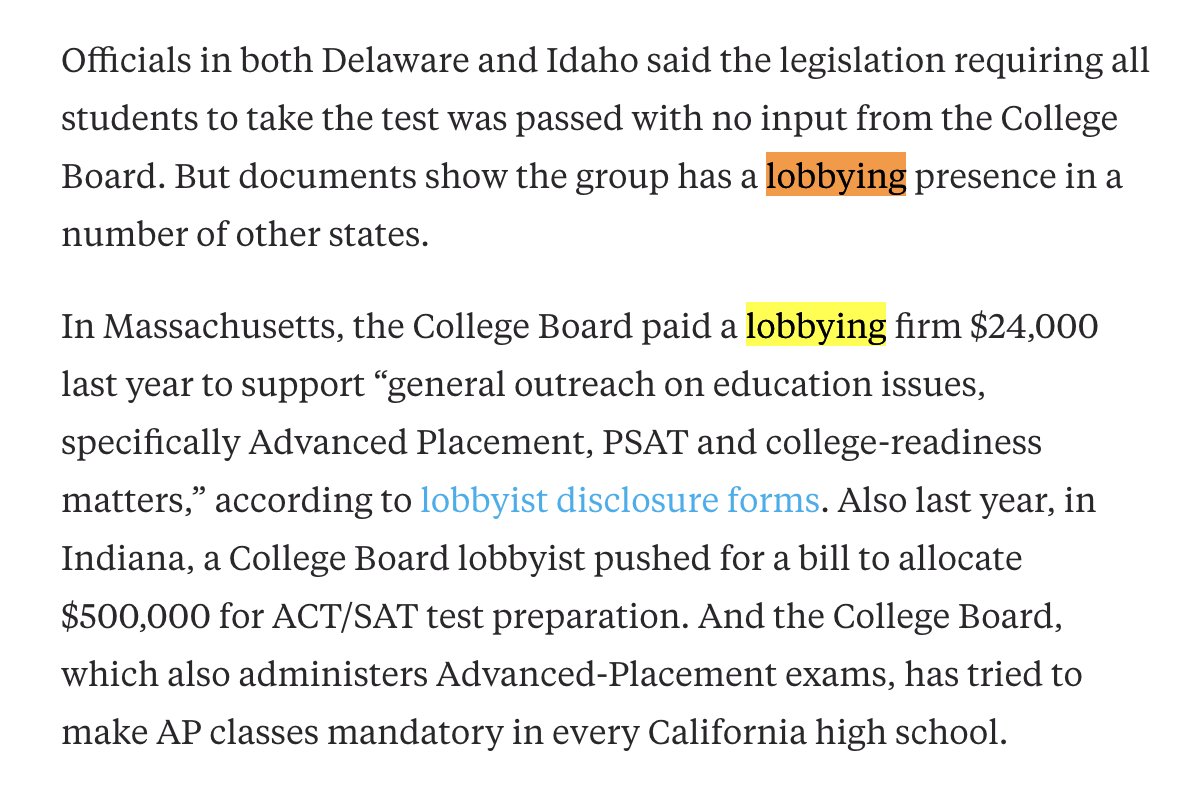
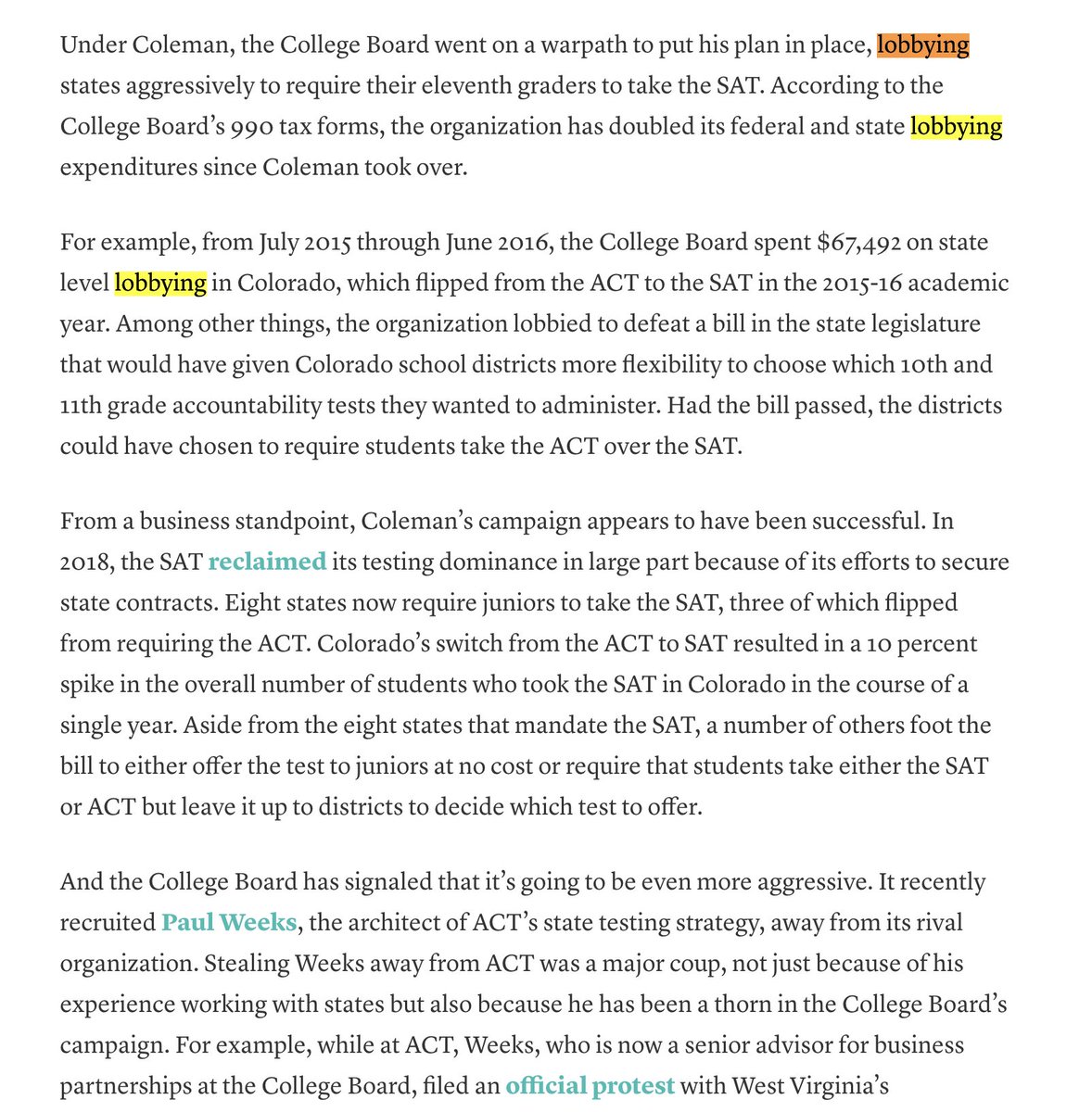

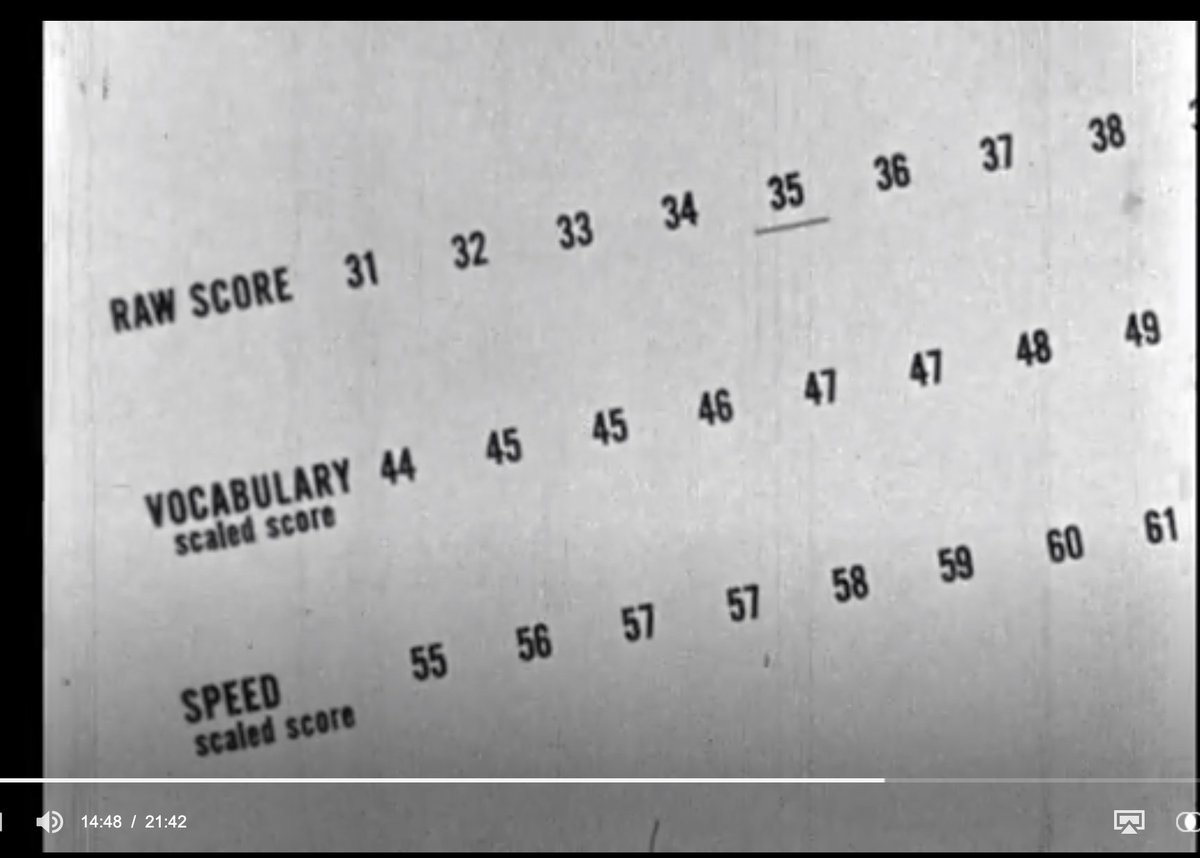


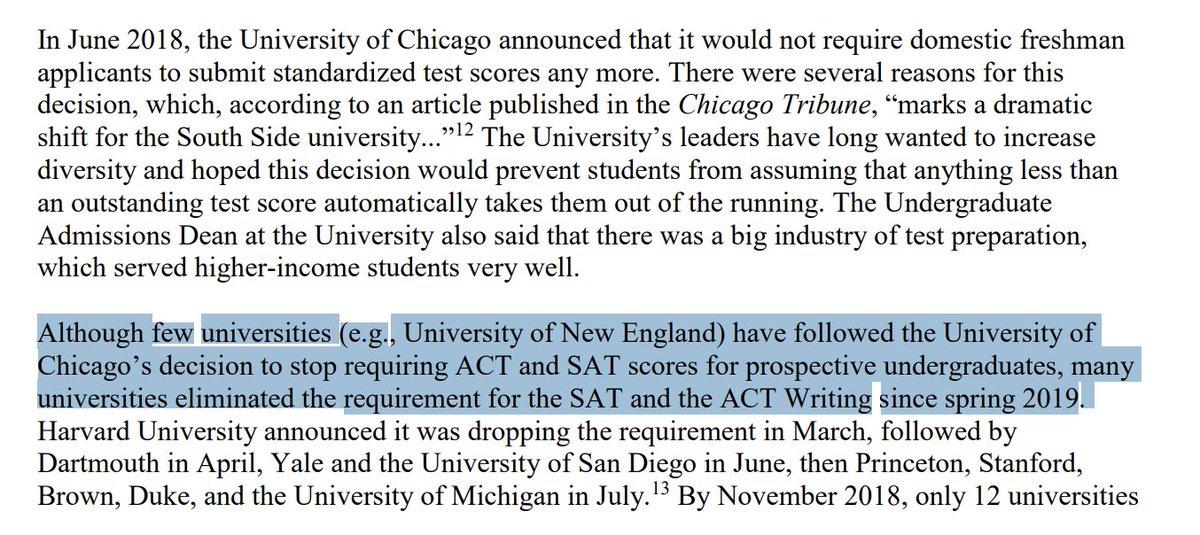
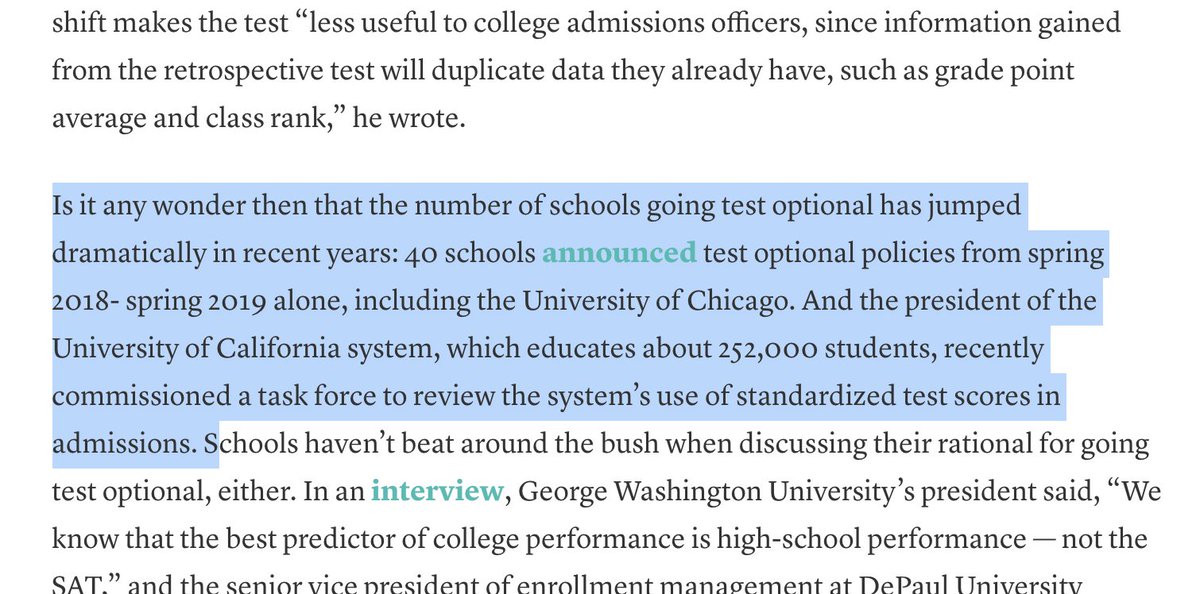
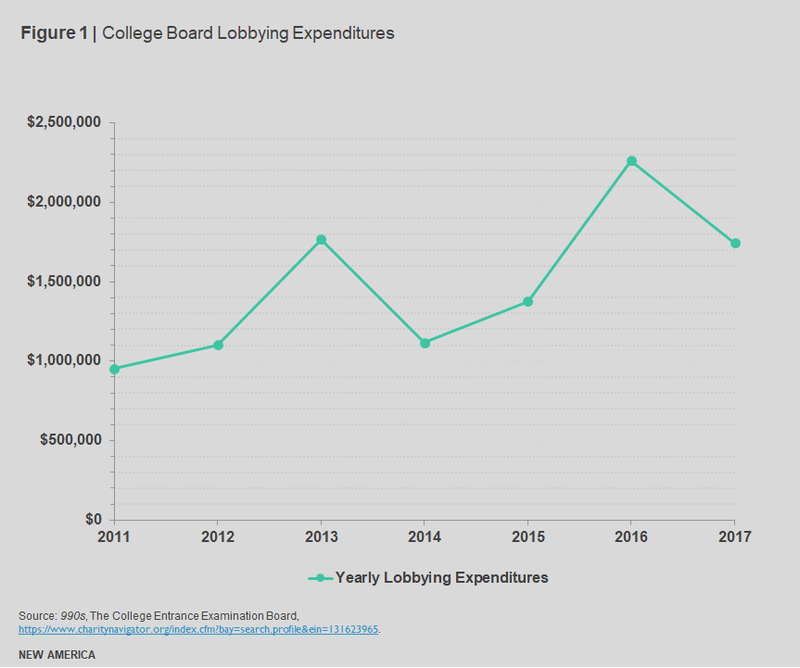


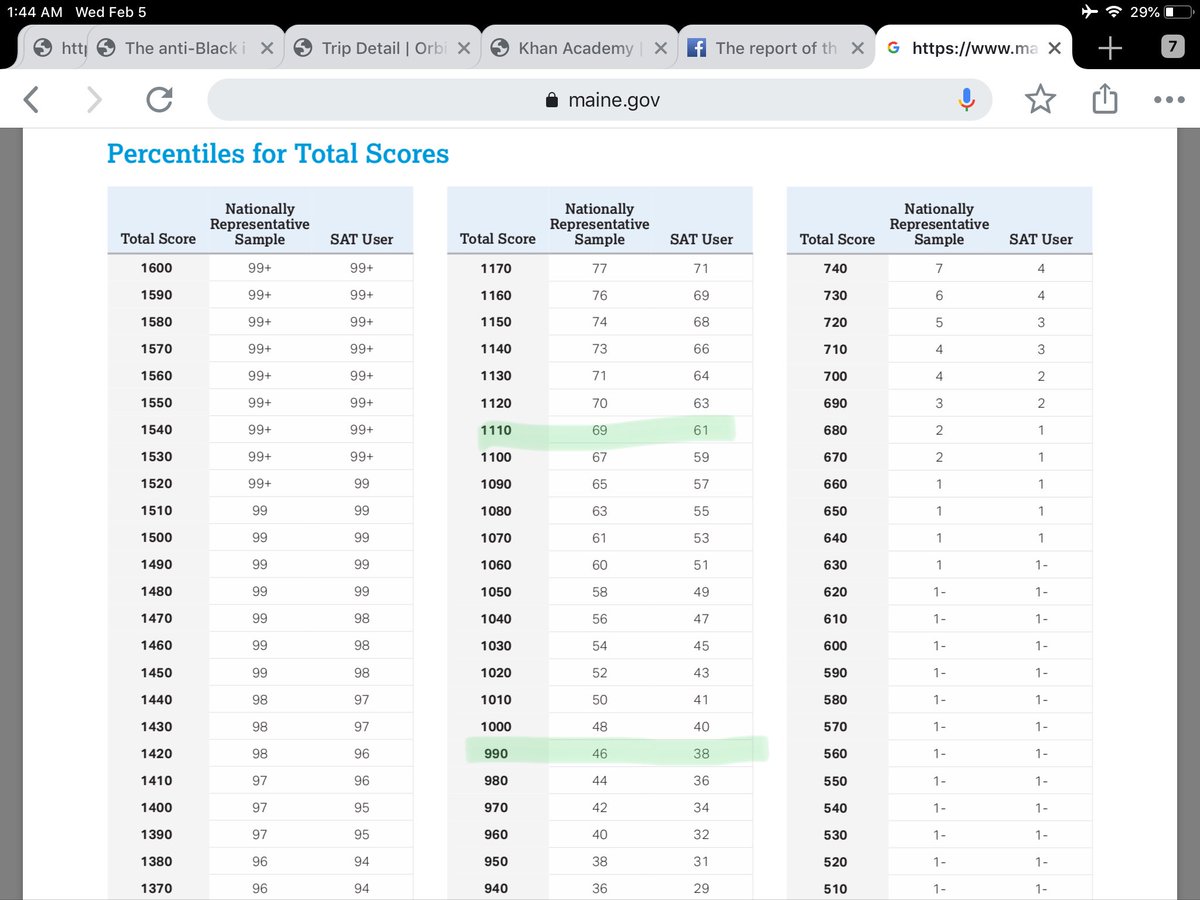
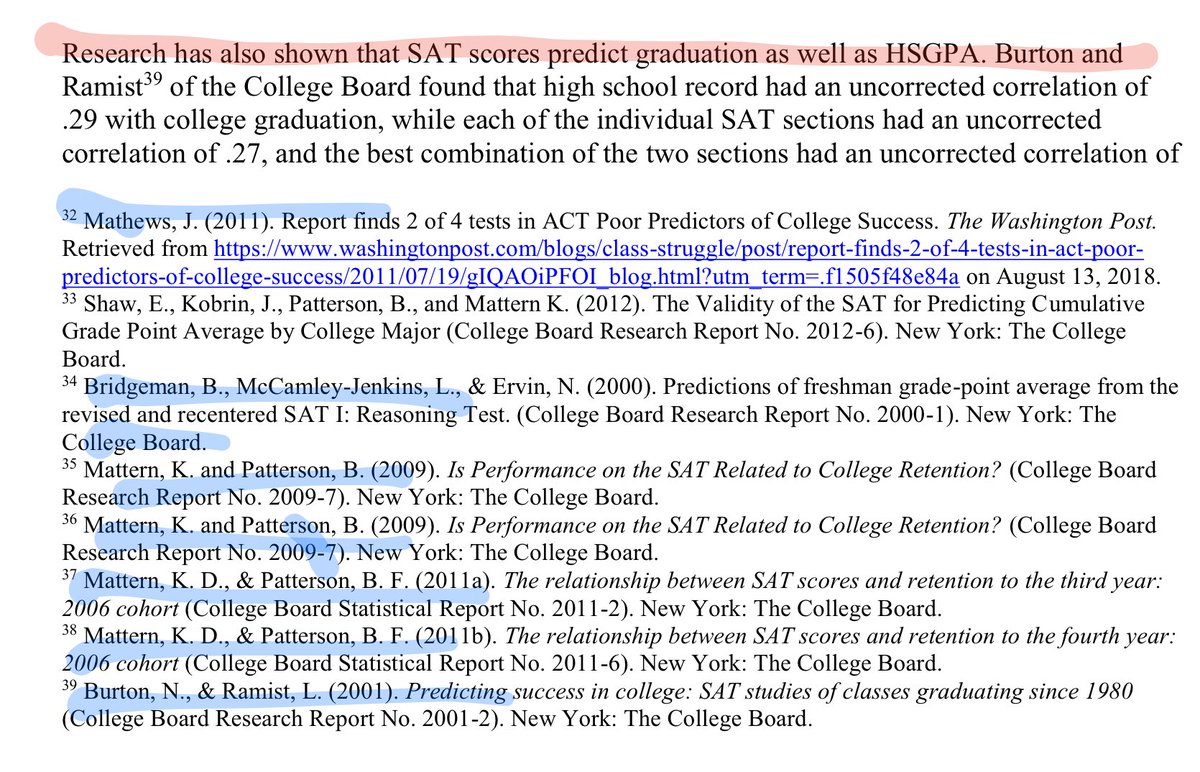
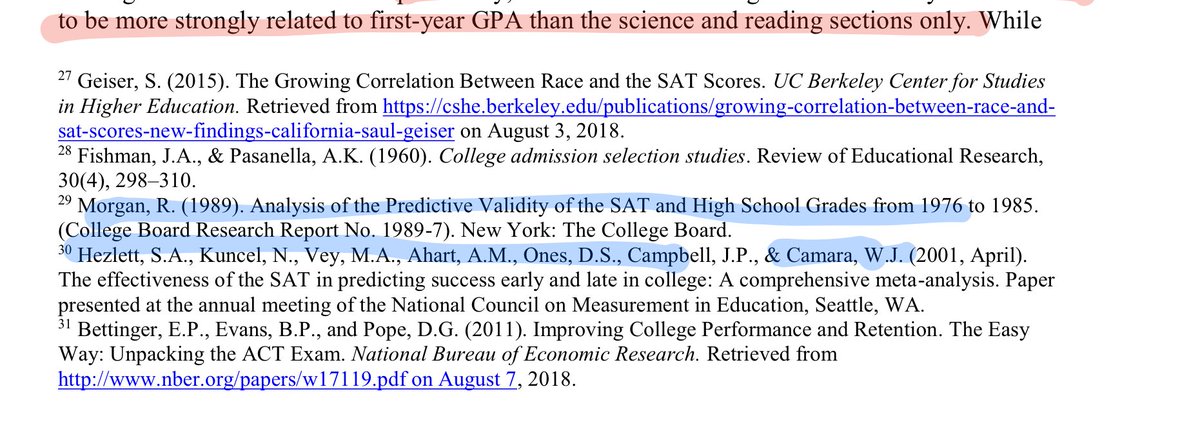
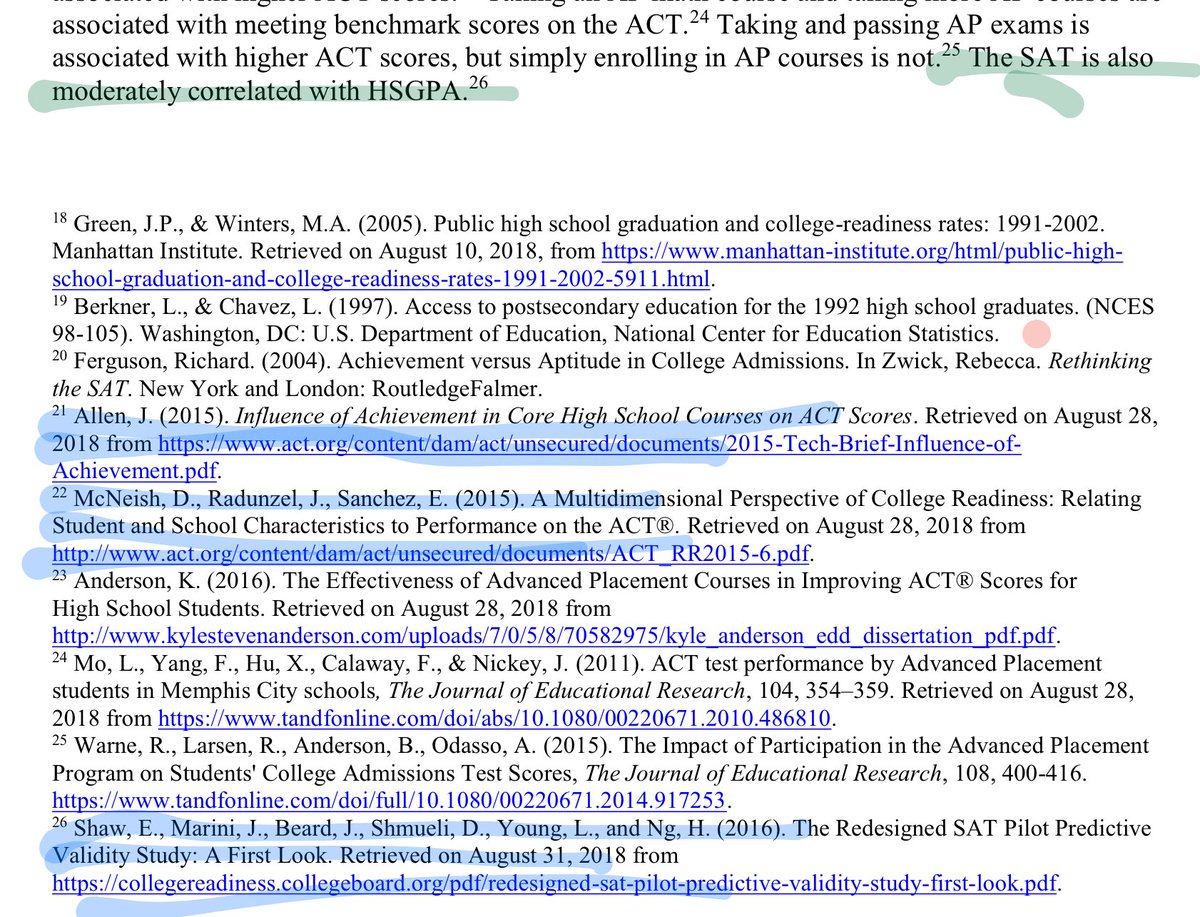
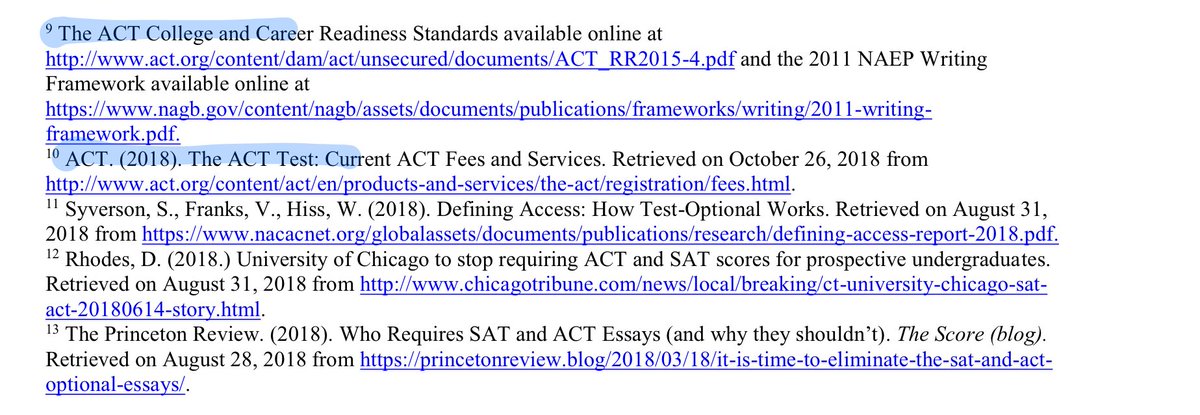
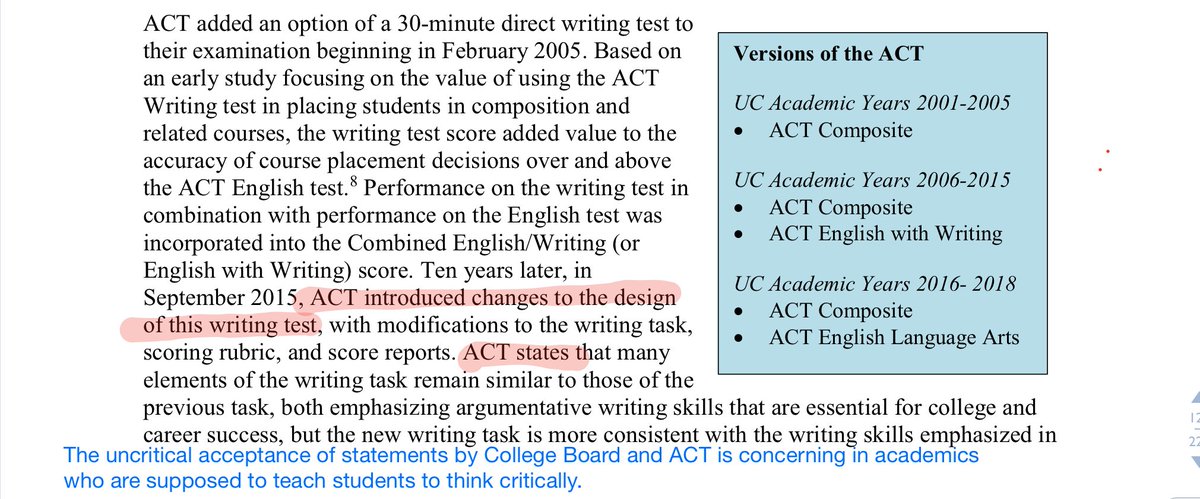


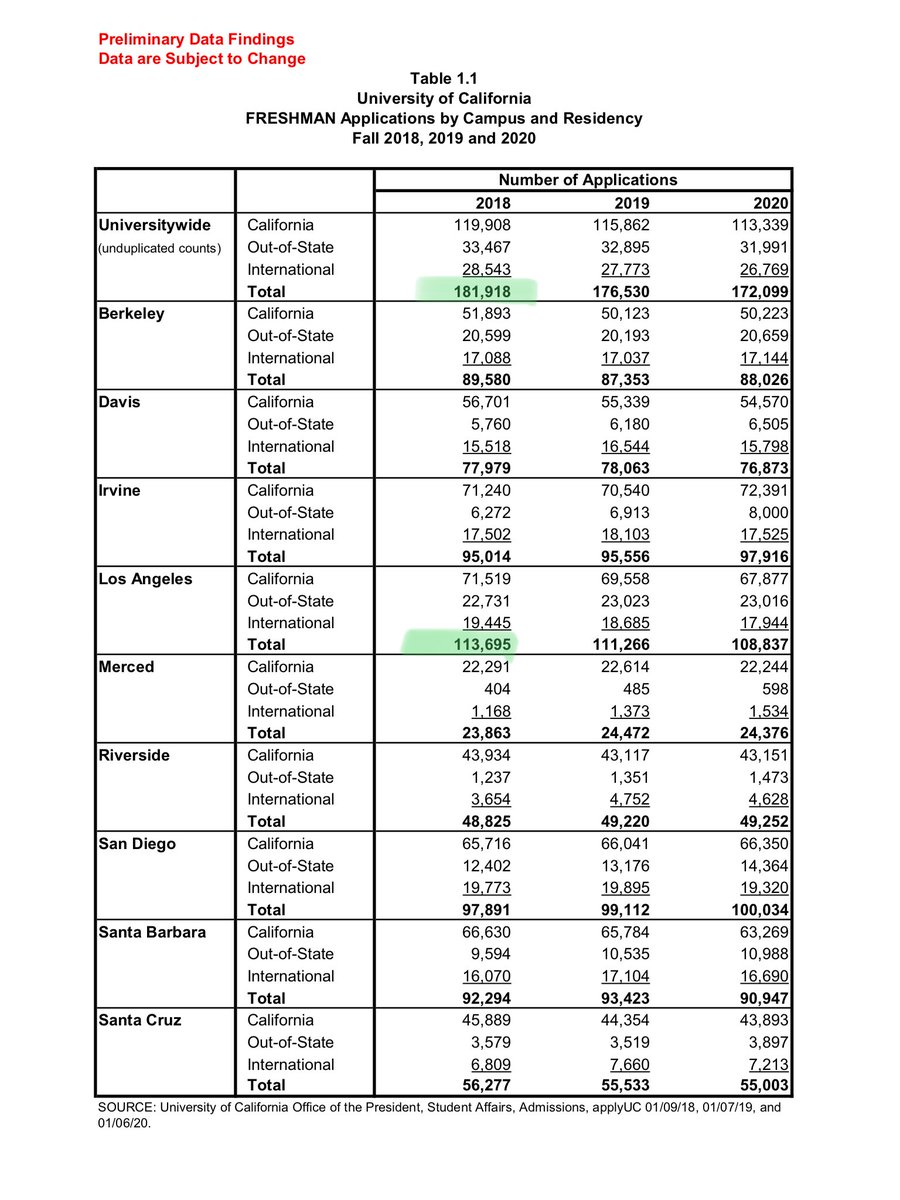
![Let me cycle back to this morsel about #validity.Look at that faulty comparison. Let me fix that line for them: "Despite the [claimed] efforts the College Board over the years to improve the validity of their standardized tests in predicting college success, [they have not]." Let me cycle back to this morsel about #validity.Look at that faulty comparison. Let me fix that line for them: "Despite the [claimed] efforts the College Board over the years to improve the validity of their standardized tests in predicting college success, [they have not]."](https://pbs.twimg.com/media/EQBF_TEXUAYvTm8.jpg)
![Let me cycle back to this morsel about #validity.Look at that faulty comparison. Let me fix that line for them: "Despite the [claimed] efforts the College Board over the years to improve the validity of their standardized tests in predicting college success, [they have not]." Let me cycle back to this morsel about #validity.Look at that faulty comparison. Let me fix that line for them: "Despite the [claimed] efforts the College Board over the years to improve the validity of their standardized tests in predicting college success, [they have not]."](https://pbs.twimg.com/media/EQBF_TNXkAAE3ce.jpg)

